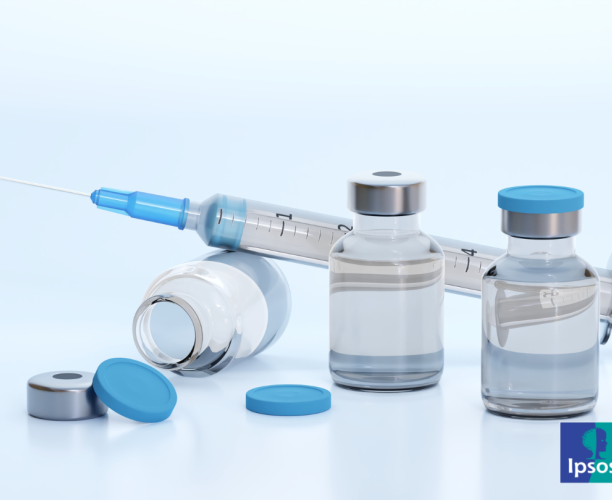

Malaysian pregnant mothers accept benefits of national Tdap vaccination programme from the Ministry of Health
A survey investigating the pertussis disease awareness, current behaviours with vaccination in pregnancy and vaccine information sources used and trusted by pregnant women in their 3rd trimester and new mothers who gave birth maximum 6 months before (who are in the public health sector).
Vaccination in Pregnancy is accepted as effective and safe in Malaysia, with the majority of mothers acknowledging the importance of adhering to national vaccination guidelines during pregnancy.
70% of surveyed mothers agree that vaccination during pregnancy is the most effective way to protect their baby until the baby can get their own vaccination, with 63% also in agreement that vaccines during pregnancy would be safe for both mother and baby.
79% of surveyed mothers also believe it is important to adhere to the national guidelines as far as immunisation in pregnancy is concerned.
When looking at whooping cough, there is notable knowledge around the disease, leading to high awareness of the Tdap vaccination. However, there is still potential to increase this awareness through national recommendations and proactive recommendation from healthcare professionals on the benefits of vaccination in pregnancy to the mother and their babies.
In Malaysia, a notable 94% of surveyed mothers have at least heard of whooping cough, with nearly half (47%) stating that they know a great deal or fair amount about the disease and 68% of surveyed mothers agree that whooping cough can be life-threatening to infants without immunisation. Among these mothers who have at least heard of whooping cough (n=75), 88% appreciate that whooping cough is a fairly or very serious disease to newborns.
63% of pregnant mothers (n=38) state they already received the Tdap vaccination or are intending to receive it; meanwhile 33% of new mothers (n=42) have been administered the Tdap vaccine.
80% of women are aware of the Tdap vaccine, regardless of whether they've discussed it with HCPs or not. While 61% report having discussed it with their HCPs, only 43% of study participants mentioned their HCP told them about the Tdap vaccine during pregnancy and 18% have proactively asked an HCP about the vaccine.
Though there are clear indicators that show surveyed mothers and pregnant women are willing to receive the Tdap vaccination, a public vaccination campaign will be key in increasing uptake of the Tdap vaccine amongst mothers in Malaysia.
In a hypothetical scenario where the Tdap vaccine was both recommended and subsidised, 89% of surveyed mothers (94% amongst pregnant, 83% amongst new mothers) would be fairly or very willing to receive the vaccine. This willingness is notably higher than in a scenario where the vaccine is recommended but not subsidised, in which case only 55% of all surveyed mothers (63% amongst pregnant, 48% amongst new mothers) express being fairly or very willing to get vaccinated.
The three most frequently selected reasons from a given list for why surveyed mothers could choose to receive the Tdap vaccination during pregnancy are the vaccine is safe for mother and baby (56%), the vaccine is recommended by HCPs (54%) and the vaccine is free of charge (49%).
Despite the existing positive sentiment towards the vaccine, MoH public engagement and vaccine advocacy campaigns will be crucial to drive high vaccination uptake. It's important to ensure mothers feel engaged in the vaccination process.
66% of surveyed mothers would be somewhat or very likely to seek additional information on vaccines in pregnancy if this came via a government campaign regarding awareness of disease concerned and the important of the vaccine in question.
Doctors and the MoH were ranked as the top 2 most commonly used sources of information from a pre-coded list regarding vaccines during pregnancy. Nearly half of respondents (49%) found doctors to be an influential source of information, and this was followed by 29% who considered the MoH to be an influential source.
Technical note
Ipsos, on behalf of Sanofi, conducted research with 80 women in Malaysia n=38 of whom were in their 3rd trimester of pregnancy and n=42 had given birth in the last 6 months. Fieldwork took place between January 14th – February 16th 2024. Other markets (Turkey, South Africa) were also included in the study, but these results are not included in the article.
The fieldwork was carried out via hybrid methodology; n=60 participants completed the survey online and n=20 completed the survey online during face-to-face interviews.
To qualify for the study respondents had to:
• Be aged between 18-45 years old
• Be currently in the 3rd trimester of pregnancy or have recently given birth in the last 6 months
• Have positive or mixed opinions towards vaccines (those against vaccines were screened out)
• Attend public settings for health and pregnancy check-ups (those attending private settings were screened out)
• Have no private healthcare insurance that would pay for vaccines
This was the first wave of the study; a second wave will be conducted post vaccination campaign launch to assess the impact on awareness, vaccination behaviour and identify areas for improvement.



![[PRESS RELEASE] - Malaysian Attitude Towards Equality](/sites/default/files/styles/list_item_image/public/ct/news_and_polls/2025-09/Ipsos%20Press%20Release%20-%20Malaysian%20Attitudes%20Towards%20Equalities%20040925_1.png?itok=wTeDym3Y)